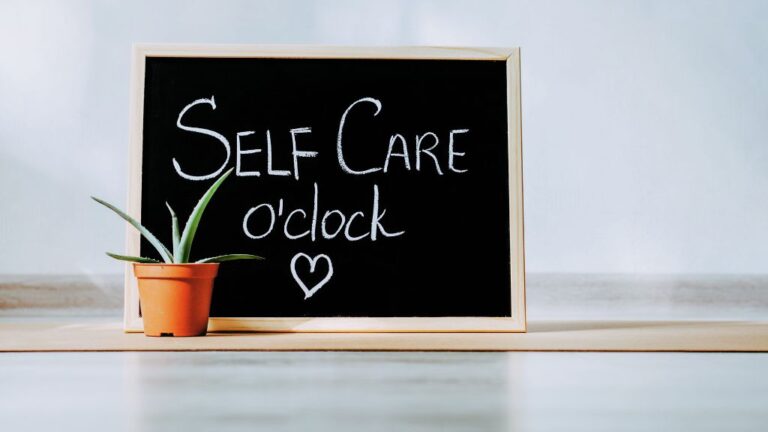Table of Contents
Watching your child learn, grow, and become more independent is a journey filled with both joys and challenges, especially for families of children living with autism spectrum disorder (ASD).
For many of the kids in this community, developing self-care skills is a key step toward helping them thrive and feel confident in their daily lives. If you’re a parent or caregiver in Connecticut, know that you’re not alone in wondering how best to support your kid’s independence and well-being.
In fact, many families ask: Can children with autism really master self-care skills?
The answer is yes! With patience, encouragement, and the right strategies, progress is not only possible but often remarkable for children on the spectrum.
In this guide by ABA Centers of Connecticut, we’ll take a closer look at what self-care means for children with autism and why it matters. We’ll also discuss how ABA therapy and early intervention can help them and you on this journey.
So, keep reading to learn more about this valuable topic. Discover more about ABA Centers of Connecticut here. Read other blogs about parenting children on the spectrum with the help of ABA here.
Understanding Why Self-Care Skills Matter for Kids with Autism
Self-care skills or life skills for children with autism often include practical activities, like dressing and using the bathroom. These skills help form the foundation of independence that kids carry into their adulthood.
Self-care may also boost your child’s self-esteem and make it easier for them to participate at home, in school, and within the community.
Other examples of self-care skills include:
- Dressing and Grooming
- Feeding and Mealtimes
- Toileting
- Brushing Teeth and Bathing
According to Autism Speaks, children with autism may face unique hurdles in learning these skills. Their challenges may include sensory sensitivities, challenges with communication, or difficulty understanding multi-step routines.
But every child is different, and progress comes in many forms. As a parent, it’s essential to recognize where your child may struggle while also focusing on their strengths.
Common Challenges for Kids with Autism Learning Self-Care Skills
No two children with autism develop at the same pace or in the same way. Some kids might quickly pick up a skill like tying their shoes, while others may need extra support when trying new foods or following a bathing routine.
Common challenges you may notice in your child include, but are not limited to:
- Struggles with transitions or changes in routine
- Difficulty with fine motor tasks (like zipping a jacket or buttoning a shirt)
- Sensitivity to certain textures, smells, or sounds
- Needs more support to follow instructions or sequences of steps
While these challenges are very real for many, children can overcome them with the right mix of patience, creativity, and evidence-based support. ABA and early intervention models help in many cases.
Practical Strategies: Building Self-Care Skills for Kids with Autism
So, what can families do to make self-care more manageable and less stressful? Here are research-backed strategies you can try at home, adapted from expert resources:
- Break Tasks into Steps: Use checklists or picture schedules to break routines down (like getting dressed or brushing teeth) into simple steps your child can follow.
- Visual Supports: Implement visual cues, like illustrated instructions near the bathroom sink or a visual timer, to help finish tasks.
- Establish Routines: Consistent routines help kids know what to expect and build confidence with repetition.
- Model and Practice: Demonstrate the task yourself, then practice together, gradually encouraging your child to try more on their own.
- Offer Choices: Let your child pick the soap scent or the shirt to wear. For many kids, choices foster confidence and make routines more appealing.
- Positive Reinforcement: Celebrate every accomplishment, no matter how small. Praise, hugs, or a favorite activity can be motivating.
- Consider Sensory Needs: If your child dislikes certain textures or sensations, see if there are alternatives (soft tag-free clothing, flavored toothpaste, etc.).
- Be Flexible and Patient: If progress is slow, stay patient. Adapt your strategies and remember that each step forward is meaningful.
- Take Breaks and Ask for Help: If your child gets “stuck” in one area, break the task down further or ask for ideas from your therapy team.
How ABA Therapy and Early Intervention Help
ABA Therapy for Self-Care Skills
Applied Behavior Analysis (ABA therapy) is an evidence-based approach widely used for teaching daily living skills to children with autism. In ABA therapy, specialists include Board Certified Behavior Analysts (BCBAs) and Registered Behavior Technicians (RBTs).
They help neurodivergent children to:
- Assess your child’s skills and needs
- Set realistic, individualized goals
- Teach self-care tasks using clear instructions, modeling, and positive reinforcement
- Track progress and adapt strategies as your child learns
Self-care goals in ABA therapy often include learning routines like using the toilet, dressing, personal hygiene, feeding through positive reinforcement, and other learning techniques.
Why Early Intervention Matters
Early intervention defines a therapy model that supports your child’s learning and development as soon as possible, most commonly in early stages of brain development when children are most receptive to change. This approach sets the foundation for future autonomy.
Research consistently shows that early targeted support for self-care and life skills leads to better outcomes long term. For example, many kids who receive early ABA approaches are more likely to achieve milestones in daily living, communication, and socialization.
Kids with Autism Make Significant Strides with ABA
Kids with autism can and do make meaningful progress with self-care skills—even if it takes time. Progress may be slow at first, and setbacks are normal, but fortunately, consistency and support pay off long term.
Remember, small victories like learning to button a shirt or wash hands without reminders are significant accomplishments worth celebrating. So, keep learning new ways to help kids on the spectrum feel better each day.
If you’re concerned about your child’s ability to learn self-care skills, starting early makes a difference. Don’t hesitate to reach out for an evaluation or support—there’s no such thing as “too soon” to help your child flourish.
Connect with ASD Support and Resources in Connecticut
You don’t have to face this journey alone. Connecticut offers many resources to support your neurodiverse family, including:
- Diagnostic ASD testing, early intervention, and ABA therapy by experienced, compassionate professionals like ABA Centers of Connecticut
- Parent support groups and educational workshops
- Community, recreational, and sensory-friendly events
Take the Next Step in Autism Care with ABA Centers of Connecticut
Improving self-care skills for kids with autism is not just about learning new tasks; it’s about gaining confidence, independence, and achieving lifelong possibilities. Whether you’re celebrating a new milestone or feeling stuck, support is available every step of the way.
If you’re ready to help your child grow, gain independence, and feel proud of their daily routines, contact ABA Centers of Connecticut online or by calling us at (844) 395-0448.
Our team is here to answer your questions, provide diagnostic testing, and create personalized early intervention and ABA therapy services to help your child and your family thrive.
So don’t hesitate because every child deserves the chance to shine.









